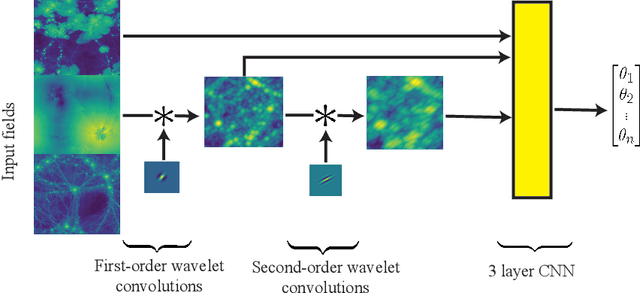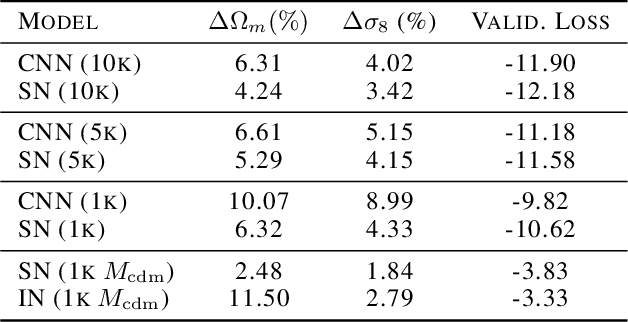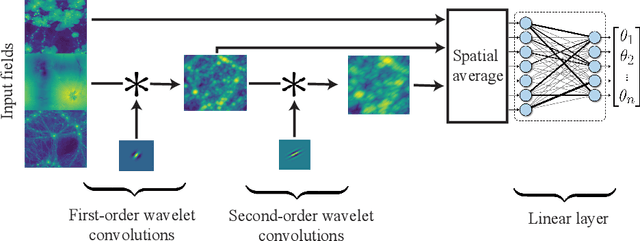Learnable wavelet neural networks for cosmological inference
Paper and Code
Jul 24, 2023



Convolutional neural networks (CNNs) have been shown to both extract more information than the traditional two-point statistics from cosmological fields, and marginalise over astrophysical effects extremely well. However, CNNs require large amounts of training data, which is potentially problematic in the domain of expensive cosmological simulations, and it is difficult to interpret the network. In this work we apply the learnable scattering transform, a kind of convolutional neural network that uses trainable wavelets as filters, to the problem of cosmological inference and marginalisation over astrophysical effects. We present two models based on the scattering transform, one constructed for performance, and one constructed for interpretability, and perform a comparison with a CNN. We find that scattering architectures are able to outperform a CNN, significantly in the case of small training data samples. Additionally we present a lightweight scattering network that is highly interpretable.
 Add to Chrome
Add to Chrome Add to Firefox
Add to Firefox Add to Edge
Add to Edge